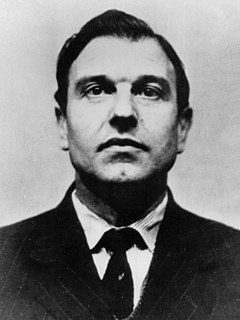A Quote by bell hooks
I see myself, in terms of the question of capitalism, as I would support democratic socialism over a capitalist system, because any approach... or participatory economics, which is another great model that people like Michael Albert are putting out there... any system that encourages us to think about interdependency, and to be able to use the world's resources in a wiser way, for the good of the whole, would be better for the world than capitalism.
Quote Topics
Able
About
Albert
Another
Any
Approach
Because
Better
Capitalism
Capitalist
Democratic
Democratic Socialism
Economics
Encourages
Good
Great
Like
Michael
Model
Model T
Myself
Out
Over
Participatory
People
Putting
Question
Resources
See
Socialism
Support
System
Terms
Than
Think
Us
Use
Way
Which
Whole
Wiser
World
Would
Would Be
Related Quotes
Despite the miracles of capitalism, it doesn't do well in popularity polls. One of the reasons is that capitalism is always evaluated against the non-existent, non-realizable utopias of socialism or communism. Any earthly system, when compared to a Utopia, will pale in comparison. But for the ordinary person, capitalism, with all of its warts, is superior to any system yet devised to deal with our everyday needs and desires.
One of the problems with traditional anti-capitalist thought is that it defines capitalism as a totality, which encourages us to imagine another totality, socialism, which we can try to replace it with. This totalizing perspective has colonized the imagination of anti-capitalism and left us waiting for a revolution we can never have.
A Jesuit once wrote a note to Father Arrupe, his superior general, asking him about the relative value of communism, socialism and capitalism. Father Arrupe gave him a lovely reply. He said, "A system is about as good or as bad as the people who use it." People with golden hearts would make capitalism or communism or socialism work beautifully.
Capitalism is not only a better form of organizing human activity than any deliberate design, any attempt to organize it to satisfy particular preferences, to aim at what people regard as beautiful or pleasant order, but it is also the indispensable condition for just keeping that population alive which exists already in the world. I regard the preservation of what is known as the capitalist system, of the system of free markets and the private ownership of the means of production, as an essential condition of the very survival of mankind.
Capitalism is very far from a perfect system, but so far we have yet to find anything that clearly does a better job of meeting human needs than a regulated capitalist economy coupled with a welfare and health care system that meets the basic needs of those who do not thrive in the capitalist economy. If we ever do find a better system, I'll be happy to call myself an anti-capitalist.
The powers of financial capitalism had a far-reaching aim, nothing less than to create a world system of financial control in private hands able to dominate the political system of each country and the economy of the world as a whole. This system was to be controlled in a feudalist fashion by the central banks of the world acting in concert, by secret agreements arrived at in frequent meetings and conferences.
It has not been possible to build that society. It set very high standards, because not only would life in the Soviet Union or in any other country which adopted that system, have to be just as good as in the Capitalist world, it would have to be better. So that other peoples, other nations would want to join it, and obviously we have failed in that.
I find Chinese debates about their political system domestically, but also about China's claims in the international system, to be among the most original and surprising and exciting of our time. The starting point is a system that none of us had anticipated, which I call Leninist capitalism, but also obviously because it is the most important emerging power. The question of China's relations with the United States in particular, and the rest of the world in general, is the question of war and peace in the 21st century.
In the course of history periods of capitalism and socialism alternate with one another; capitalism is the unnatural, socialism the natural economic system... The National Socialists and the Red Front have the same aspirations. The Jews falsified the Revolution in the form of Marxism and that failed to bring fulfilment.
...the transition from capitalism to Socialism and the liberation of the working class from the yoke of capitalism cannot be effected by slow changes, by reforms, but only by a qualitative change of the capitalist system, by revolution. Hence, in order not to err in policy, one must be a revolutionary, not a reformist.
Were I to make the announcement and to run, the reasons I would run is because I have a great belief in this country [America]. ... There's more natural resources than any nation in the world; the greatest education population in the world; the greatest technology of any country in the world; the greatest capacity for innovation in the world; and the greatest political system in the world.
Every system tries to get people to conform to support that system. That goes for communism, socialism, free enterprise, or any other civilization. If they don't demand loyalty, they can't keep their civilization together. So what they do is they teach things that would support an established system. We do not advocate an established system. TVP talks of an emergent system into state of change. So that we always prepare people for the next changes coming ahead. So that people will not cling to the past.
Capitalism and socialism are two distinct patterns of social organization. Private control of the means of production and public control are contradictory notions and not merely contrary notions. There is no such thing as a mixed economy, a system that would stand midway between capitalism and socialism.




































